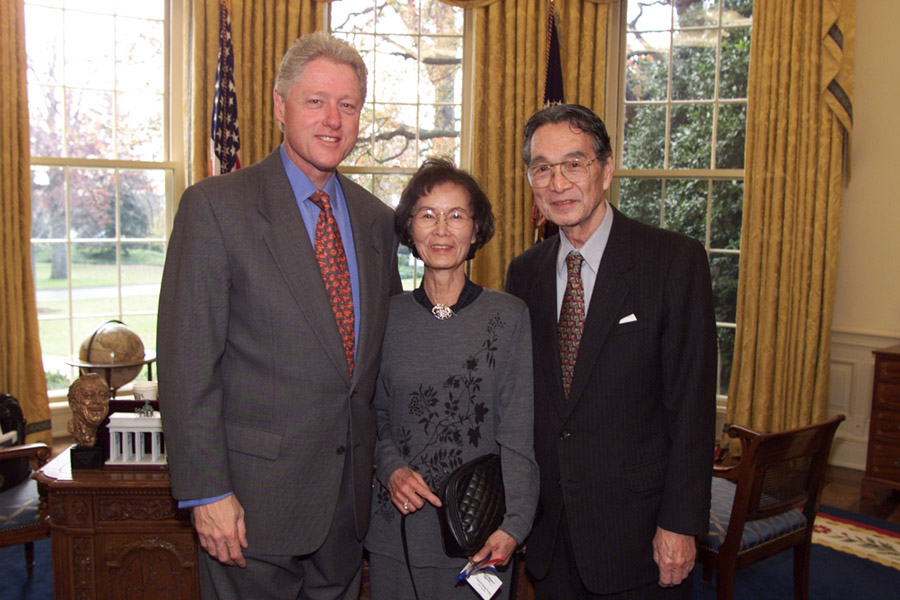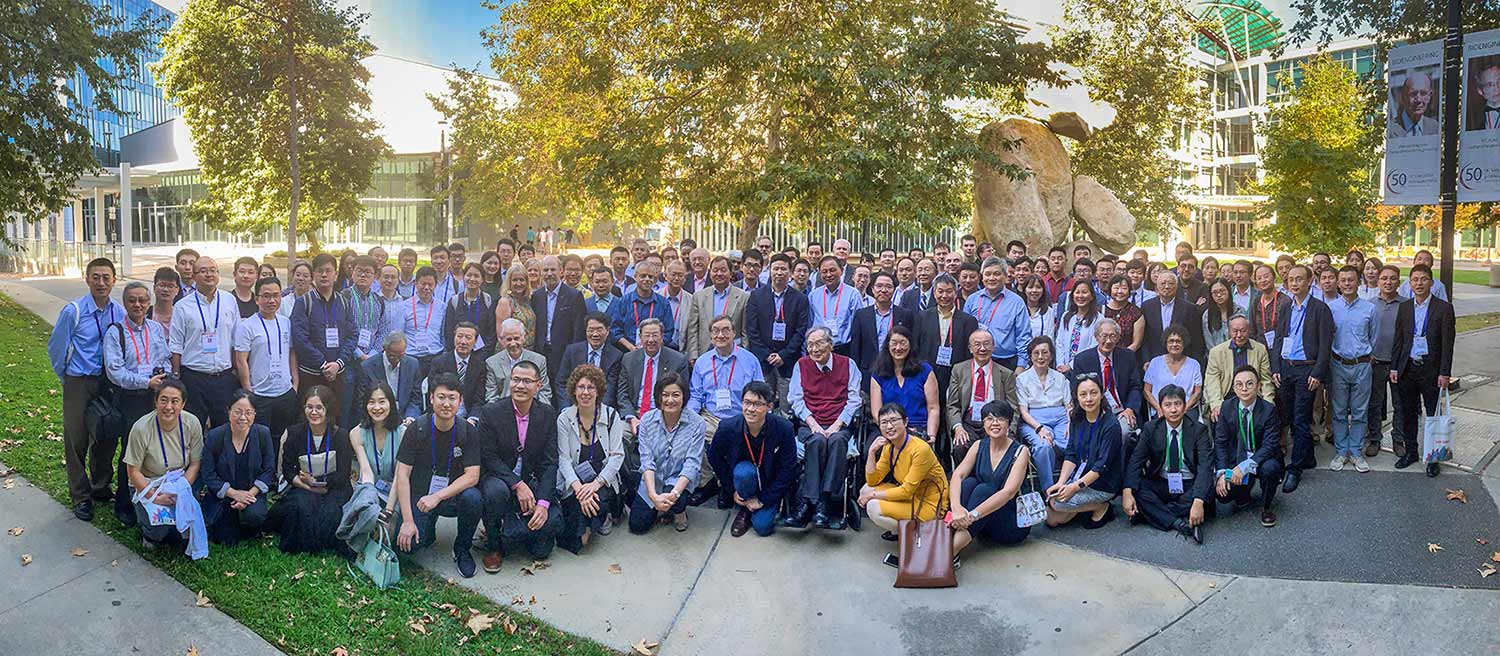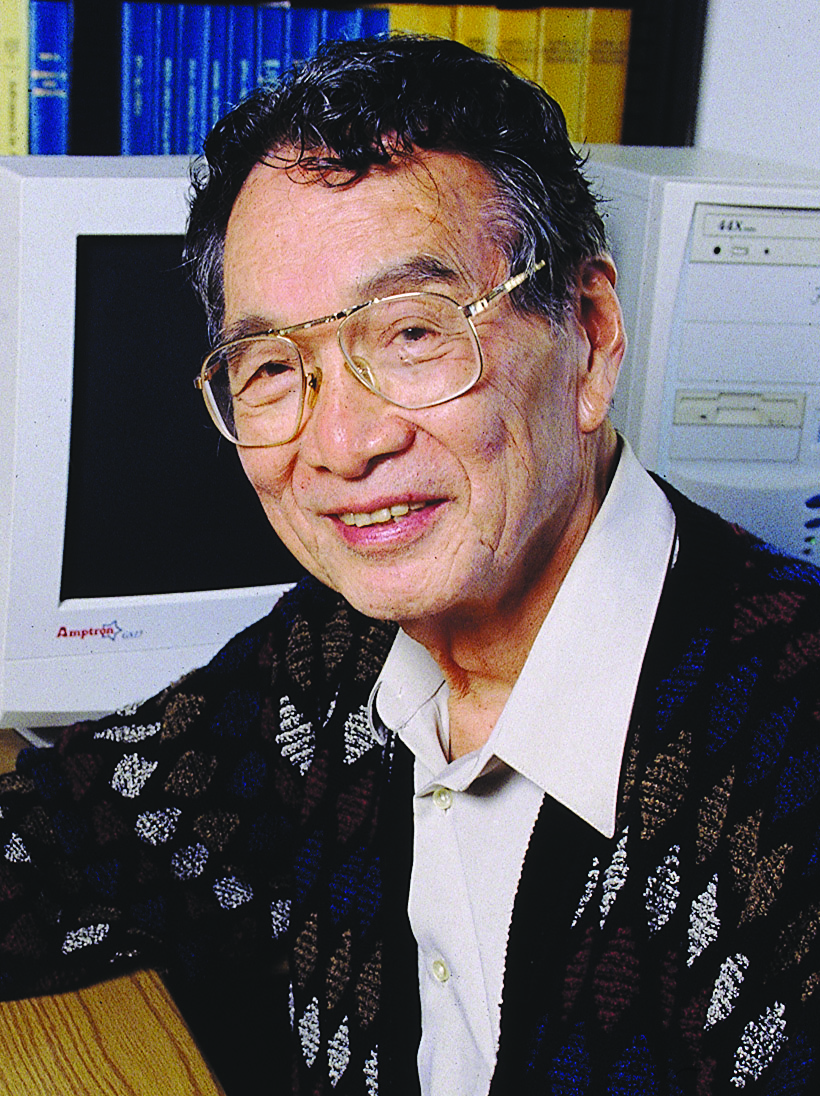
News Obituary: Y.C. Bert Fung
Published Date
By:
- Ioana Patringenaru
Share This:
Article Content
Yuan-Cheng “Bert” Fung, known as “the father of biomechanics” and one of the founders of the discipline of bioengineering at the University of California San Diego, passed away Dec. 15, 2019 of natural causes. He was 100.
Fung was the first to realize that physics and mechanics apply to living tissues just as they do to manmade structures, giving rise to the field of biomechanics. Later, Fung was the first to coin the term “tissue engineering.”
Fung received a National Medal of Science in 2000, the first bioengineer to earn the distinction. He also was the fourth individual in history elected into all three branches of the National Academies—Science, Engineering and Institute of Medicine. But Fung’s favorite accolade was a Founders Award from the National Academy of Engineering he received in 1998, because it was bestowed by his peers, said his son, Conrad Fung.
“The field of bioengineering has lost a giant,” said Chancellor Pradeep K. Khosla. “Professor Fung’s visionary work defined a new field of study that reshaped humankind’s understanding of the human body. He will be celebrated on our campus and revered worldwide as the founder of modern biomechanics.”
Fung joined UC San Diego in 1966 and was one of the founders of its bioengineering program, along with fellow researchers Benjamin W. Zweifach and Marcos Intaglietta. The department is ranked No. 1 in the nation by the National Research Council at the National Academies.
During the following half century, Fung, his colleagues and his students went on to study and analyze the mechanics at work in virtually all living tissues, including blood vessels, skin, muscle, cartilage, heart, lung—and more. All safety crash tests for motor vehicles today rely on Fung’s fundamental studies of tissue mechanics.
"Even as we mourn the loss of an irreplaceable colleague and mentor, we celebrate Bert's many lasting achievements," said Albert P. Pisano, dean of the Jacobs School of Engineering at UC San Diego. "A founding father of one of our world-class departments, he made a profound impact, over many productive decades, not only in his chosen field but also on hundreds of young scholars who were lucky to have him as a teacher and an inspirational guide."
In addition to his scholarship, Fung is remembered as a kind mentor. His laugh was one of his most distinctive qualities, according to his colleagues. “He was the most joyful individual,” said Geert Schmid-Schoenbein, professor of bioengineering at UC San Diego and one of Fung’s former Ph.D. students. “When you stepped into a building, you could tell where he was just by the sound of his laughter.”
That laughter was last heard on the UC San Diego campus in September 2019, when Fung visited campus for a celebration of his 100th birthday. More than 100 researchers from as far as Israel, Taiwan, Singapore and China came together for this special occasion.

Fung (right) received the National Medal of Science in 2000. He poses here with President Bill Clinton and his wife, Luna.
Fung’s research and career
Fung moved to California from China in 1946, immediately after the end of WWII, to pursue a graduate degree in aeronautics at Caltech. He very quickly became an expert in the field of aeroelasticity—the study of the interaction of aerodynamic forces with structures that aren’t rigid. He wrote the leading textbook on the subject and led a renowned research group at Caltech.
But in 1958, while he was on sabbatical in Germany, his mother developed acute glaucoma back home in China. Fung immersed himself in all the research available on the condition at the time. He translated the latest journal articles and sent them to his mother’s physicians. But it quickly became evident to him that not much was known about the mechanical forces and physical phenomena to which living tissues are subjected. This was his first step toward focusing on bioengineering.
After his move to UC San Diego in 1966, Fung was able to formulate the exponential law that describes how soft tissue deforms under stress. That law was later central to car safety design. The same law helped researchers develop artificial skin grafts that mimic the skin’s properties and are used to help burn victims heal.
He studied the mechanics of blood flow through microcirculation, which is the circulation of blood in the smallest blood vessels. He developed the “sheet-flow” theory which provides a quantitative description of pulmonary circulation, hypertension, edema, and respiratory distress syndrome in the lung.
“After many years in the field, I really think that an interdisciplinary area is not just the one area plus another,” Fung said in an extensive oral history he recorded for IEEE in 2000. “It’s the new product in between, which is neither of the mother fields. The interesting part is the new in-between part.”
Fung as a teacher and mentor

More than 100 researchers from around the world gathered at UC San Diego in September 2019 to celebrate Fung's 100th birthday.
Fung’s key principle was “Take it easy. And work hard,” said his son, Conrad. It might sound like a paradox, but to Fung it meant that it was important to set clear goals and keep those in mind while working hard without second-guessing and fretting. He passed this on to his students.
“My father was aware of how strong a scholar he was,” said Conrad. “He didn’t have to struggle between spending time to figure out research questions and spending time sharing his knowledge. That was a great gift.”
Many of the Ph.D. students and postdoctoral researchers Fung mentored went on to lead bioengineering and biomedical engineering departments around the United States. Many have the same story: They heard Fung talk during a seminar and were instantly impressed. Often, they lingered after the talk and found that Fung was personable and easily approachable. Soon, they transferred to UC San Diego to be part of Fung’s research group.
Fung told his students that engineers should be able to turn any complicated problem into a simple problem.
“A problem is like a tree full of leaves in summer but loses all of them in fall so you can see things more clearly,” said Michael Yen, who was one of Fung’s Ph.D. students and postdocs before he joined the UC San Diego faculty. He was later recruited to start a biomedical engineering program at the University of Memphis. Fung also encouraged his students to be creative and do pioneering work, Yen said. “He told us to be like the spring flower that blooms first, before all others.”
Yen accompanied Fung on a trip to China. Fung had been asked to give a one-month lecture tour to help kickstart bioengineering programs in that country after the end of the Cultural Revolution. “Everywhere we went, he wanted to help the poor and the needy,” Yen said. “I learned from him to be concerned about people’s humanity.”
Fung’s legacy at UC San Diego
At UC San Diego, Fung’s legacy is upheld by many researchers, said bioengineering professor Schmid-Schoenbein.
Shu Chien, who was recruited by Fung to come to UC San Diego from Columbia University, focused on the study of how blood flow and pressure affect vessels until his retirement this year. He earned a National Medal of Science in 2011. Chien wrote a 20-page academic paper on Fung’s legacy for his 100th birthday. “Through his vision of the power of ‘model making’ to explain and predict biological phenomena, Dr. Fung opened up a new vista for bioengineering,” Chien wrote. “Dr. Fung is not only a superb scientist and engineer, but also a wonderful artist. He has excellent command in Chinese calligraphy and poetry. He is a Renaissance man.”
One of Fung’s grandchildren, Tony Fung, is now a graduate student in bioengineering here on campus.
UC San Diego also was enriched by the efforts of Fung’s wife, Luna, who gave up her career as a mathematician and helped found and develop the International Center on campus, said Conrad Fung. She passed away in 2017.
Fung is survived by his son Conrad A. Fung of Brookfield, Wis., and his daughter Brenda Fung Manos of Belmont, Mass., and three grandsons, Nicholas Manos of Long Beach, Calif. (Claire Bazley), and Anthony Fung and Michael Fung of Brookfield, Wis.
In lieu of flowers, the family requests that donations be made to the UC San Diego Bioengineering Excellence and Innovation Fund (fund F-3090) or to the Red Cross. When Fung first stepped off the boat upon arriving in the United States, the Red Cross gave him a coffee and a donut. The organization remained close to his heart ever since, his children said.
To give an online gift in memory of Dr. Fung, visit giveto.ucsd.edu and search for “Bioengineering Excellence and Innovation Fund .” Checks can also be mailed to the UC San Diego Foundation, with “Bioengineering Excellence and Innovation Fund (fund F-3090)” in the memo, to 9500 Gilman Dr. #0940 La Jolla CA 92093-0940.
Share This:
You May Also Like
Stay in the Know
Keep up with all the latest from UC San Diego. Subscribe to the newsletter today.



